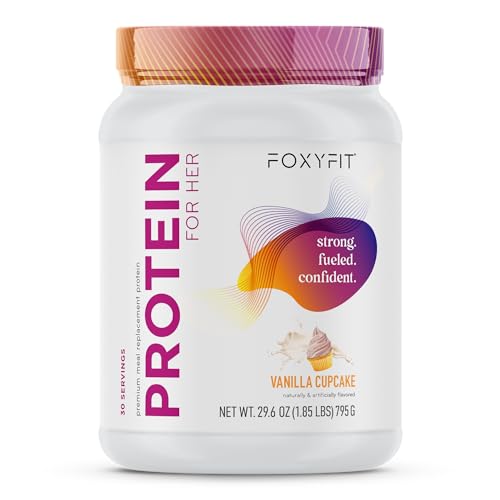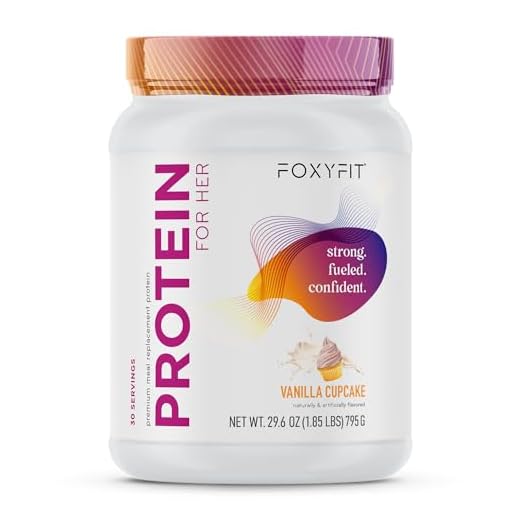



In the quest for a toned and strong physique, women often wonder about the ideal intake of vital nutrients to maximize their muscle-building potential. The significance of incorporating the right amount of essential elements in one’s diet cannot be overstated, as they lay the foundation for sustainable muscle growth and overall well-being.
Protein is an integral building block for muscle development, as it helps repair and rebuild the damaged muscle tissues. However, determining the right quantity of protein intake for women can be quite complex, as individual needs may differ based on various factors such as age, weight, activity level, and overall health.
Ensuring an adequate amount of protein is essential, yet it is equally crucial to strike a balance and avoid excessive intake, as it may lead to potential health risks. The carefully tailored protein intake can contribute significantly to muscle growth, increase strength, and enhance overall athletic performance.
Optimal Protein Consumption for Women’s Muscle Building
Protein plays a vital role in enhancing muscle growth and repair in the female body. Ensuring an appropriate intake of this essential nutrient is crucial for women who are seeking to build muscle and achieve their fitness goals. By understanding the importance of protein and the recommended daily intake, women can optimize their muscle-building progress.
An ideal protein consumption level for women engaged in muscle building relies on several factors such as overall body weight, level of physical activity, and individual fitness objectives. Generally, the daily protein intake should be based on a woman’s lean body mass, taking into account her specific body composition.
Experts in the field of nutrition and fitness suggest that women aiming for muscle building should consume a range of protein between 1.2 to 1.7 grams per kilogram of their lean body mass. This range ensures adequate protein supply to support muscle growth, repair, and recovery without excessive intake.
- Include protein-rich foods like lean meats, poultry, fish, eggs, dairy products, legumes, and tofu in your diet.
- Consider incorporating sources of vegetarian protein such as quinoa, lentils, chickpeas, and chia seeds to meet your daily protein requirements.
- Spread out protein intake throughout the day, consuming it in smaller portions with each meal or snack to facilitate muscle synthesis.
- Consult with a registered dietitian or nutritionist to tailor your protein intake based on your specific needs and goals.
- Stay well-hydrated to support protein digestion and absorption, as water plays a crucial role in these processes.
It is important to note that while protein is essential for muscle building, it should be part of a well-balanced diet that includes a variety of nutrients. Ensuring an appropriate protein intake, combined with regular resistance training and overall healthy lifestyle choices, will help women achieve their desired muscle-building results.
Understanding the Significance of Protein for Enhancing Muscle Development
In the realm of fostering muscle growth, comprehending the importance of protein intake serves as a crucial element. Protein plays a pivotal role in facilitating muscle repair and growth, encompassing a multitude of essential functions vital for achieving optimal fitness goals.
- Protein as a Building Block: Protein functions as the fundamental building block of muscle tissues, aiding in the formation and repair of muscle fibers.
- Optimizing Exercise Recovery: Consuming adequate protein after workouts assists in promoting efficient recovery by replenishing damaged muscle tissues and supporting the production of new muscle cells.
- Muscle Protein Synthesis: The process of muscle protein synthesis, where new muscle proteins are created, is greatly influenced by protein intake. Sufficient protein consumption can enhance this process, contributing to muscle growth.
- Muscle Preservation: In addition to muscle growth, protein consumption also serves to preserve muscle mass during periods of calorie restriction or weight loss, preventing muscle breakdown.
- Increased Thermogenesis: Protein-rich foods have a higher thermogenic effect compared to other macronutrients, meaning that the body burns more calories during digestion, contributing to fat loss.
Understanding the vital role that protein plays in muscle development can guide individuals in making informed dietary choices to optimize their fitness journey. Proper protein intake, complemented by regular strength training, can facilitate muscle growth and aid in the achievement of desired goals.
Factors Influencing Protein Requirements for Women
When it comes to determining the optimal protein intake for women, several factors play a crucial role. Understanding these key influences is essential for developing a personalized and effective muscle-building nutrition plan.
| Factors | Description |
|---|---|
| 1. Physical Activity Level | The intensity and duration of physical activity significantly impact a woman’s protein requirements. Individuals engaging in regular workouts, especially strength training, require higher protein intake to support muscle repair and growth. |
| 2. Body Composition | The amount of lean body mass versus body fat can influence protein needs. Women with higher muscle mass generally have higher protein requirements to maintain and promote muscle growth. |
| 3. Age | Age-related factors, such as changes in hormone levels and decreased muscle mass, can influence protein requirements. Older women may need slightly higher protein intake to mitigate muscle loss and support muscle protein synthesis. |
| 4. Overall Health | Individuals with certain medical conditions or recovering from an injury may have increased protein needs to support healing, recovery, and overall health maintenance. |
| 5. Pregnancy and Lactation | Women who are pregnant or breastfeeding have increased protein demands to support the growth and development of the fetus or infant. |
| 6. Dietary Restrictions | Specific dietary restrictions or preferences, such as following a vegetarian or vegan diet, can affect a woman’s protein intake sources. Adequate planning is crucial to ensure meeting protein requirements through alternative sources. |
By considering these factors along with consultation from a nutrition professional, women can determine their individual protein requirements to support muscle building and overall health goals. It’s important to remember that protein needs may vary significantly depending on individual circumstances, and a personalized approach is crucial for optimal results.
Optimal Protein Consumption for Females Looking to Increase Muscular Mass
Enhancing muscle development and maintaining overall physical fitness requires an adequate intake of protein-rich foods. In the quest for achieving desired results, understanding the recommended protein intake for female muscle building plays a crucial role. By ensuring sufficient protein ingestion, women can promote muscle growth and support their fitness goals.







